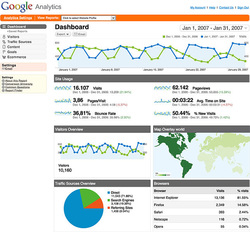
One of the most time consuming aspects to any search engine optimization (SEO) strategy is link building, the process of getting other sites to link back to yours. Having quality, links back to your site improves your search engine and authority ranking.
Here are a few ways that you can gain quality links back to your site.
First off is to have a company blog. This steady stream of fresh content will serve multiple purposes–set you apart as an expert in your field, give people a reason to keep coming back to your site and provide links directly to your website. On top of this, if your content is well done then it may be shared, linked back to or posted to a social bookmarking site that will generate even more quality links. That is a win-win-win situation.
Next are sponsorships, associations and affiliations. These are things your company is mostly likely already doing–sponsoring a local event or sports team and networking with area associations. Check to find out if the event has a webpage where your company can have a link, does that association list business on their webpage, if so ask for a link. In exchange off to link to their site; it is a fair trade.
Guest blogging for another site within your industry, or one that is industry adjacent is another way to build up inbound links. This is an opportunity to again show how you are an expert in the industry while at the same time putting your name in front of a new audience and introducing them to your company. In exchange, you get a link back to your website. The benefit for the other site is that you will mention the post you wrote to your social media following and send some web traffic their way.
Get the whole staff involved with brainstorming ways to get links to your site. Public relations staff can work various angles with their contacts and have press releases link directly to specific articles on your site rather than just the home page. All staff members could keep it in mind when communicating with any vendors or partners they connect with, perhaps with an exchange of testimonials on each other websites. The key is seeking out multiple quality sites; you never know where those could come from so ask everyone to keep them in mind as they go about their daily jobs.
Image Source: MorgueFile
Here are a few ways that you can gain quality links back to your site.
First off is to have a company blog. This steady stream of fresh content will serve multiple purposes–set you apart as an expert in your field, give people a reason to keep coming back to your site and provide links directly to your website. On top of this, if your content is well done then it may be shared, linked back to or posted to a social bookmarking site that will generate even more quality links. That is a win-win-win situation.
Next are sponsorships, associations and affiliations. These are things your company is mostly likely already doing–sponsoring a local event or sports team and networking with area associations. Check to find out if the event has a webpage where your company can have a link, does that association list business on their webpage, if so ask for a link. In exchange off to link to their site; it is a fair trade.
Guest blogging for another site within your industry, or one that is industry adjacent is another way to build up inbound links. This is an opportunity to again show how you are an expert in the industry while at the same time putting your name in front of a new audience and introducing them to your company. In exchange, you get a link back to your website. The benefit for the other site is that you will mention the post you wrote to your social media following and send some web traffic their way.
Get the whole staff involved with brainstorming ways to get links to your site. Public relations staff can work various angles with their contacts and have press releases link directly to specific articles on your site rather than just the home page. All staff members could keep it in mind when communicating with any vendors or partners they connect with, perhaps with an exchange of testimonials on each other websites. The key is seeking out multiple quality sites; you never know where those could come from so ask everyone to keep them in mind as they go about their daily jobs.
Image Source: MorgueFile




 RSS Feed
RSS Feed
